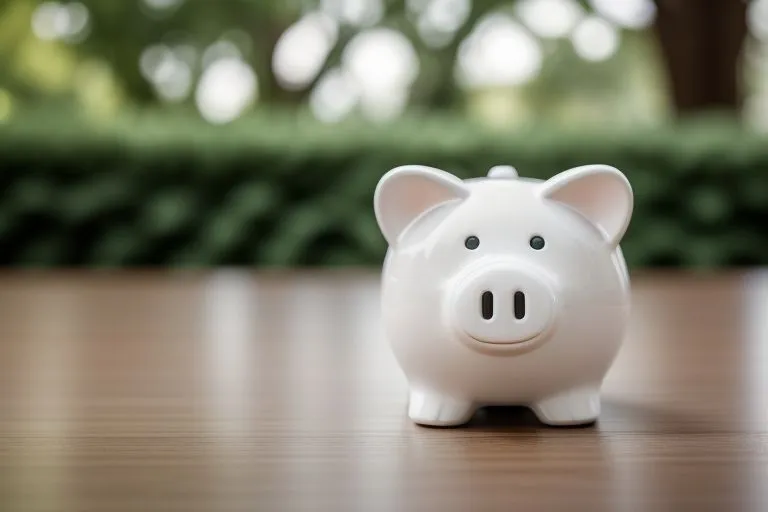
Saving money doesn’t have to be a difficult task. With a few simple habits, you can start saving every day without feeling like you’re missing out on anything. Here are some easy and practical ways to save money daily.
1. Make a Budget and Stick to It
The first step to saving money is knowing where your money goes. Create a budget that outlines your income and expenses. Track your spending to see where you can cut back. It’s not about depriving yourself but about making smarter choices. Write down everything you spend for a month and categorize it. This will help you see areas where you can save.
2. Plan Your Meals
Planning your meals can save you a lot of money. Make a weekly menu and shop for only what you need. Avoid last-minute takeout or dining out, which can be expensive. Cooking at home is usually healthier and cheaper. You can also prepare meals in bulk and freeze them for later, which saves time and money.
3. Use a Shopping List
When you go grocery shopping, always use a list. It helps you stay focused and prevents impulse buys. Stick to your list and avoid items that aren’t on it. You’ll be surprised how much you can save by simply being organized.
4. Cut Down on Utilities
Simple changes can help reduce your utility bills. Turn off lights when you leave a room, unplug electronics when they’re not in use, and take shorter showers. Consider using energy-efficient appliances and light bulbs. These small adjustments can add up to significant savings over time.
5. Use Public Transportation
If you live in an area with good public transportation, use it instead of driving. Public transport is often cheaper than owning and maintaining a car. If public transport isn’t an option, consider carpooling with friends or coworkers to save on fuel and maintenance costs.
6. Avoid Coffee Shops
Buying coffee every day can quickly add up. Instead, make your coffee at home. Invest in a good coffee maker and some quality beans. You’ll save money and still enjoy your daily caffeine fix. The same goes for other daily purchases like bottled water or snacks; bring your own from home.
7. Cancel Unused Subscriptions
Take a look at your monthly subscriptions. Are there any you don’t use regularly? Cancel them. This includes streaming services, magazines, and gym memberships. Only keep the ones you use often and truly enjoy.
8. Buy Generic Brands
When shopping for groceries or household items, consider buying generic or store brands. They are often much cheaper than name brands and usually just as good. Compare the ingredients and see for yourself. This simple switch can save you a lot over time.
9. Shop Sales and Use Coupons
Keep an eye out for sales and use coupons whenever possible. Many stores have loyalty programs that offer discounts and rewards. Sign up for these programs to take advantage of the savings. Just be sure to only buy items you need, even if they’re on sale.
10. Limit Dining Out

Dining out can be expensive. Try to limit it to special occasions. Instead, cook at home and invite friends over for a meal. Potluck dinners are a great way to socialize without spending a lot of money. When you do eat out, look for deals or go during happy hours to save.
11. DIY Whenever Possible
Do-it-yourself projects can save you a lot of money. Whether it’s home repairs, gifts, or even beauty treatments, there are many things you can do yourself with a little time and effort. Look for tutorials online and give it a try.
12. Set Savings Goals
Having clear savings goals can motivate you to save more. Whether it’s for a vacation, a new gadget, or an emergency fund, knowing what you’re saving for can help you stay focused. Set small, achievable goals and celebrate when you reach them.
13. Avoid Impulse Buying
Before making a purchase, ask yourself if it’s something you really need. Give yourself 24 hours to think about it. Often, the urge to buy will pass, and you’ll realize you didn’t need it after all. This habit can help you avoid unnecessary expenses.
14. Buy in Bulk
For items you use regularly, consider buying in bulk. It’s usually cheaper in the long run. Non-perishable items like toiletries, cleaning supplies, and dry goods are good candidates for bulk buying. Just be sure you have the storage space and that you’ll use them before they expire.
15. Use Cashback and Rewards Programs
Take advantage of cashback and rewards programs. Many credit cards offer cashback on everyday purchases. There are also apps that give you cashback for shopping at certain stores. Just be sure to pay off your credit card balance each month to avoid interest charges.
16. Save Spare Change
Don’t underestimate the power of spare change. Set up a jar to collect your coins at the end of each day. Over time, it can add up to a significant amount. You can also use apps that round up your purchases and save the difference.
17. Borrow Instead of Buy
Before buying something new, see if you can borrow it. This is especially useful for items you only need occasionally, like tools or party supplies. Ask friends or family, or check out local sharing or rental programs.
18. Exercise for Free
You don’t need a gym membership to stay fit. There are plenty of free ways to exercise, like running, biking, or following workout videos online. Look for free fitness classes in your community or use apps that offer workout plans.
19. Entertain at Home
Instead of going out for entertainment, find ways to have fun at home. Host a movie night, play board games, or have a potluck dinner with friends. You can also explore free or low-cost activities in your community, like parks, museums, or local events.
20. Track Your Progress
Keep track of your savings to see how far you’ve come. This can be a great motivator to keep going. Use a notebook, spreadsheet, or app to record your progress. Celebrate your successes, no matter how small they may seem.
